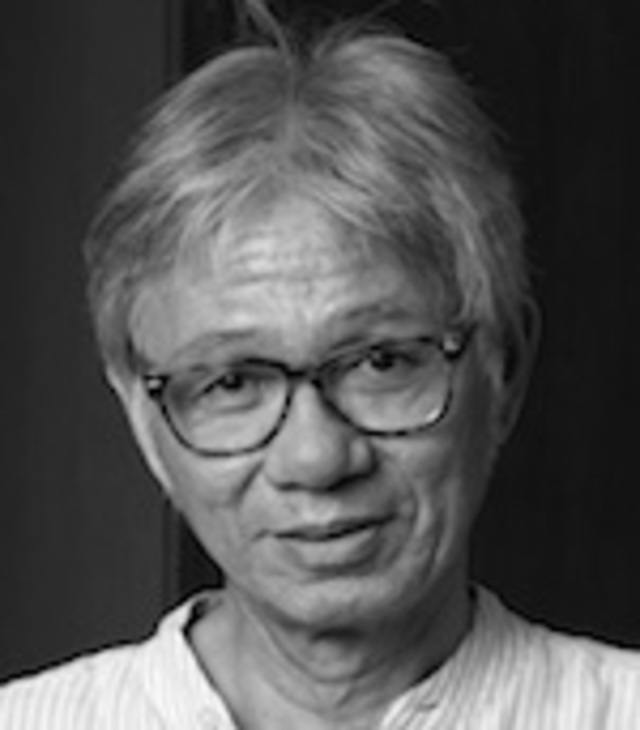
How far has Rodrigo Duterte taken us down the road to authoritarianism? As phrased, the question, asked widely these days, denotes authoritarianism as a destination. That is in fact what it was for us old enough to have been there.
We found ourselves there suddenly, delivered like a child snatched and carried away in its sleep. As we had done all our lives, we went to bed free men and women, but awoke tyrannized, and would remain tyrannized for 14 years.
Our theft in the night was Ferdinand Marcos. He was a consummate plotter, and Duterte idolizes him, and wants to do as he did. But he is no plotter himself; he is unqualified to be one, if not altogether incapable. Where Marcos was a dark genius, he is merely dark; where he was an original, he is a mere copycat – a copycat yet driven, compulsively, messily, by a personality disorder. But he seems lucky, which makes him even more dangerous.
Preceded by a reputation built as a strongman mayor of Davao for more than two decades, he ascended to the presidency on a decisive plurality of 16 million votes from a mixed constituency of poor and not-so-poor, the former looking for a quick lift to better life, the latter taken with his aberrant charm or seeing him as an icon of the politics of patronage they subscribe to.
His political star shot quickly, flashily, feeding his clinically diagnosed narcissism. He ruled a provincial city whose two million citizens populated communities so sparsely strung out in a territory 35 times the size of Manila that not enough light, whether from electric power or from political freedom, shone. Now, he rules a whole nation of more than a hundred million and wants to rule it the way he ruled Davao – dictatorially.
But, if he can’t plot like Marcos, how does he do it?
He has to continue to be lucky, and so far he’s been lucky. He has found similarly dark-minded, though not necessarily similarly mental (which is not any consolation), and substantial co-conspirators. Among them are two persistent forces: the heirs of Marcos themselves, whose suitability is defined enough by the murders and crony capitalism under their patriarch’s regime, and Gloria Macapagal-Arroyo.
Arroyo deserves special mention for at least 3 things that make for incomparable credentials:
- She was acquitted of plunder by a Supreme Court whose majority she had herself presciently appointed
- She managed still to assume the presidency (2004-2010) after being found out, and confessing, that she had lobbied an electoral commissioner (Virgilio Garcillano, the “Garci” on the infamous “Hello, Garci...” tape); she appeared on national television, wearing a Mater Dolorosa face, to say, “I…am…sorry” (the elliptical marks are an attempt to capture her measured enunciation visually), and that apparently did it for her
- Duterte singles her out as a chief political partner – out of a “deep debt of gratitude,” he says; he has in fact made her deputy House speaker and is supposed to have promised to make her prime minister if he succeeds in turning the government into a federal one, with himself as federal president
The Lower House itself is an institutional partner. Its ridiculous 90-plus percent majority for Duterte largely comprises district patrons who see in his gang-oriented leadership a furtherance of their own interests and schemes. The quality of their fidelity and usefulness manifests most distastefully in the House justice committee’s current farcical hearings of the impeachment case against Chief Justice Maria Lourdes Sereno.

For a president who brooks no dissent, Sereno is no surprise target: she has voted with the opposite – and losing – side in cases promoted by Duterte (notably, the Arroyo acquittal and the hero’s burial for Marcos); moreover, tenured for a further 14 years, Sereno will be staying too long to be suffered, not only by Duterte but also by her fellow justices whose seniority to her by age and length of service was cancelled out by her appointment and long tenure. Those bypassed justices happen to belong in the Supreme Court majority, as reckoned by their favorable votes in Duterte cases.
And there lies another exploitable commonality of sentiments with another institution.
In fact, the impeachment hearings were opened as a platform for the justices to air their resentments, an opportunity they promptly grabbed and are now taking advantage of with such reckless alacrity they don’t seem to mind parading their own polluted sense of justice. They have been going after Sereno licentiously. Consenting to testify under rules rigged to suspend the standard right of rebuttal for the accused, they have become compromised themselves, indeed implicitly enlisting themselves for Duterte.
Thought wishfully to be vulnerable to the pressure of a tradition of independent-mindedness, being elected by national vote, the Senate is seen as the last hurdle to a power consolidation for a Duterte dictatorship. But, if its recent vote for a continuation of martial law in all of Mindanao were any indication, Duterte should feel encouraged.
The vote came even after the war against terrorists and brigands in Marawi City, itself the original justification for the emergency, had been officially declared won. Furthermore, that vote had been better than decisive – 14 to 4 – although it pales still in comparison with the House vote – 240 to 27.
At any rate, with Congress and the Supreme Court in the fold, the oversight powers over the President are neutralized, and the armed forces’ hang-up on legalities is satisfied.
If we’re not already there, we’re looking right down on it. – Rappler.com